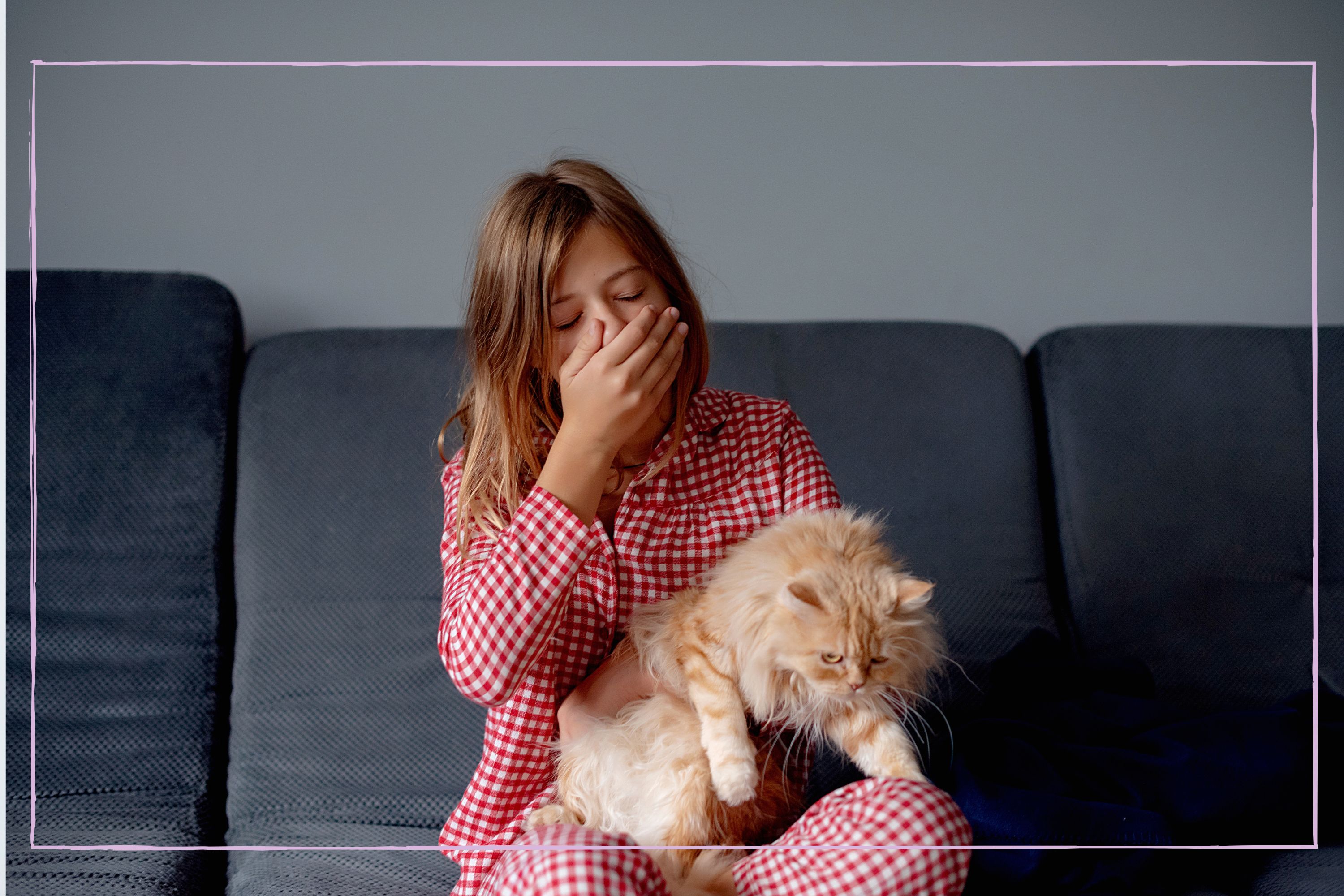Whooping cough cases on the rise in the UK as 5 babies are reported dead - this may be the biggest outbreak in two decades, new data reveals
Cases of whooping cough have been on the increase since January

New data published by the UK Health Security Agency has warned that, as cases of whooping cough in both adults and infants continue to increase, the UK may be set to experience the biggest outbreak of the infection in two decades.
We may have thought that whooping cough was an illness we had to worry little about, with most children being fully vaccinated against the bacterial infection as part of the NHS routine vaccinations. But, in January, the government recorded an increase of cases and new data shows the infection is not slowing down.
According to new data published by the UK Health Security Agency (UKHSA), 1,319 cases of the illness were confirmed in March, bringing the total number of confirmed cases in 2024 alone to 2,793.
However, as reported by The Guardian, the true number of cases is likely to be much higher though as mild cases of the infection can be easily confused with other respiratory illnesses as well as generic coughs and colds in children. Understandably this news, paired with the increase of cases, has led many parents to wonder exactly what whooping cough is and what to do if you think your child has it.
With babies aged under six months old being too young to be vaccinated against the illness, exposure to whooping cough is extremely dangerous for them. Therefore, it is vital to seek medical advice from a GP or family doctor if you suspect your child may have whooping cough. This is because, while it shouldn’t cause serious side effects in older children and adults, whooping cough can cause concerning and sometimes life-threatening complications in babies – especially in infants aged six months or younger.
However, it's not just infants who can catch whooping cough. The UKHSA data shows that just over half of the cases were in people who were 15 years or older. These cases, as is characteristic in whooping cough cases of older children, are usually identified by milder symptoms such as violent coughing fits accompanied by the loud, high-pitched 'whooping' sound as they try to draw breath.
While these cases are still unpleasant, they are nowhere near as dangerous as cases of whooping cough in babies under the age of three months, who are the age group seeing the highest rates of the illness.
Parenting advice, hot topics, best buys and family finance tips delivered straight to your inbox.
These babies may not cough at all despite the name of the infection, but can instead turn blue and struggle to breathe. They are at greatest risk of severe complications or death caused by the illness, as unfortunately was the case for five babies in England who have died as a result of whooping cough so far this year.
Remember, always consult the latest NHS advice and seek medical attention as soon as possible if you think your child has whooping cough, especially if your baby is under six months old.
Consultant epidemiologist at the UKHSA, Dr Gayatri Amirthalingam, said of the new data, “What we are currently seeing is very high case numbers, certainly higher than the 2016 peak, based on the projections so far in the first three months, and very much in line – and potentially even higher – than what we saw during our 2012 peak year, particularly in very young babies.
“Although it is difficult to make predictions, we do see waves [of whooping cough] every three to four years, and these waves can last for several months, so it’s not going to be entirely unexpected if cases continue to rise or at least remain at heightened levels for several months.
“It is certainly a real concern, which is why we are trying to raise awareness – particularly among pregnant women and the parents of young children – that whooping cough is on the rise and it is really important that they take the opportunity to get vaccinated.”
In other health news, we explore the difference between between hay fever and a cold in children and get advice for easing symptoms from doctors. And, we share why your sunscreen might be giving you less protection than you think. Plus, these natural remedies for hay fever are recommended by doctors - and can also be used in pregnancy.
Charlie Elizabeth Culverhouse is a news writer for Goodtoknow, specialising in family content. She began her freelance journalism career after graduating from Nottingham Trent University with an MA in Magazine Journalism, receiving an NCTJ diploma, and earning a First Class BA (Hons) in Journalism at the British and Irish Modern Music Institute. She has also worked with BBC Good Food and The Independent.